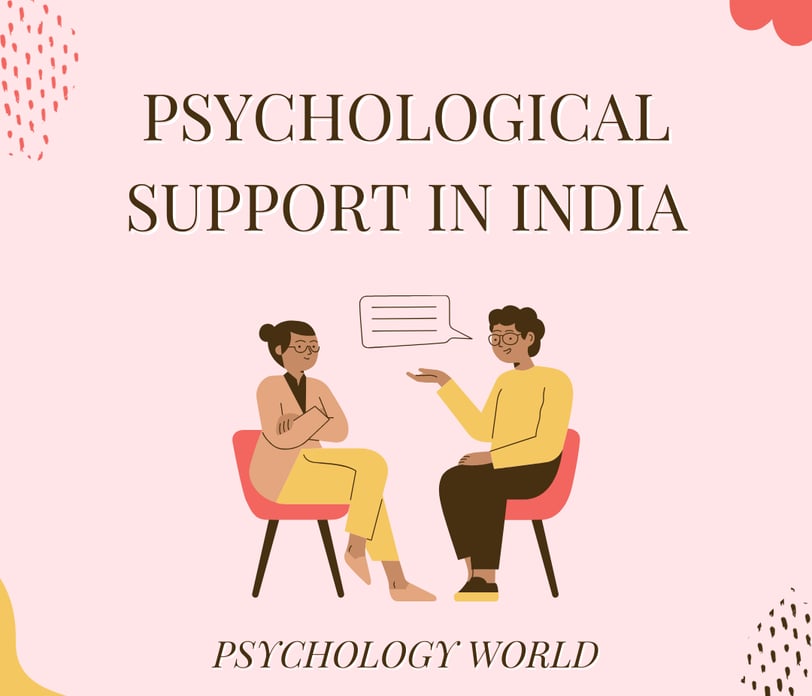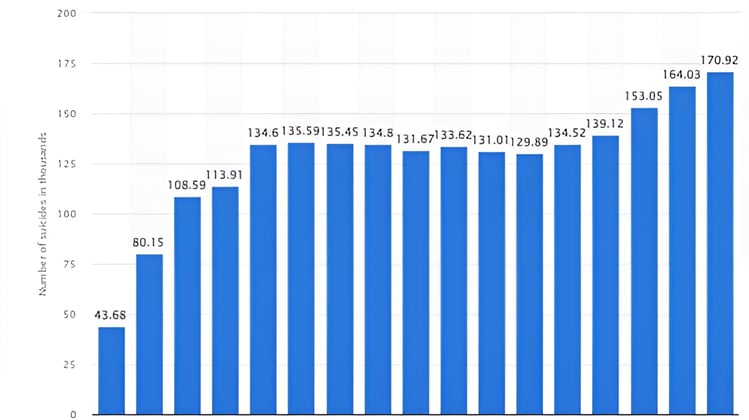Psychological Support in India: Why We Need More Professionals in the Field
5/12/20242 min read


As education is reaching more people, awareness is increasing towards different sectors be it cleanliness, fundamental rights, different health concerns such as cancer, and dengue. But are we aware of our so-called mental health? You may have come across the term psychology in your life at some point. Be it social media or your textbook where the word pops up once or twice. But do we know what it even means? Are the schools putting efforts in the right direction towards it? Is every student introduced to mental health? Do people still feel confident talking about mental health?
The answer would be No. No, most people aren't even aware of the existence of their mental health. Schools don’t even consider students' mental health while giving many homework projects and assignments. No, we don’t share our mental problems or say even emotional problems easily due to fear of judgment. There’s still a lot of stigma spread concerning mental health. It's common for people to use words like "depression" and "anxiety" carelessly even when there isn't a specific disorder present, making it even more important that people be aware of the proper meanings of these terms.
If we talk about data which was gathered by NIMHANS (National Institute of Mental Health and Neurosciences) in 2015-16 we would find that roughly 150 million people in India had some form of mental illness. It was found that mental health disorders are more prevalent among males (13.9%) than females (7.5%). But some disorders, such as depression, phobic anxiety disorders, agoraphobia, generalized anxiety disorders, and obsessive-compulsive disorders are more prevalent in females. The survey revealed that 7.3% of people aged 13 to 17 had mental disorders. According to the survey, mental disorders were found to be nearly twice as common (13.5%) in urban areas as they were in rural ones (6.9 %).
Also, suicide rates are increasing at such a high speed that only in 2022 1.71 lakh people died by suicide in India. (National Crime Records Bureau, April 2022) The suicide rate has increased to 12.4 per 1,00,000 -- the highest rate ever recorded in India.


India only had 1,000 clinical psychologists As of June 2020. India is highly lacking psychologists. Research suggests that the country needs 30–35 million counselors. This would mean India has only 0.07 psychologists per 100,000 people, which is far below the recommended ratio.
As we saw above, how behind India is in terms of mental health. We, the country's youth, should take some responsibility for awareness, for a brighter future for people suffering from India. As awareness of psychology grows over time more people should enroll in educational institutes to study the subject. The government should take responsibility for awareness. As the disability act, the government can provide some essential rights to people suffering from mental health problems.
Let's be the change-makers in mental health awareness—stay tuned for more insights. We'll meet in our next blog.
